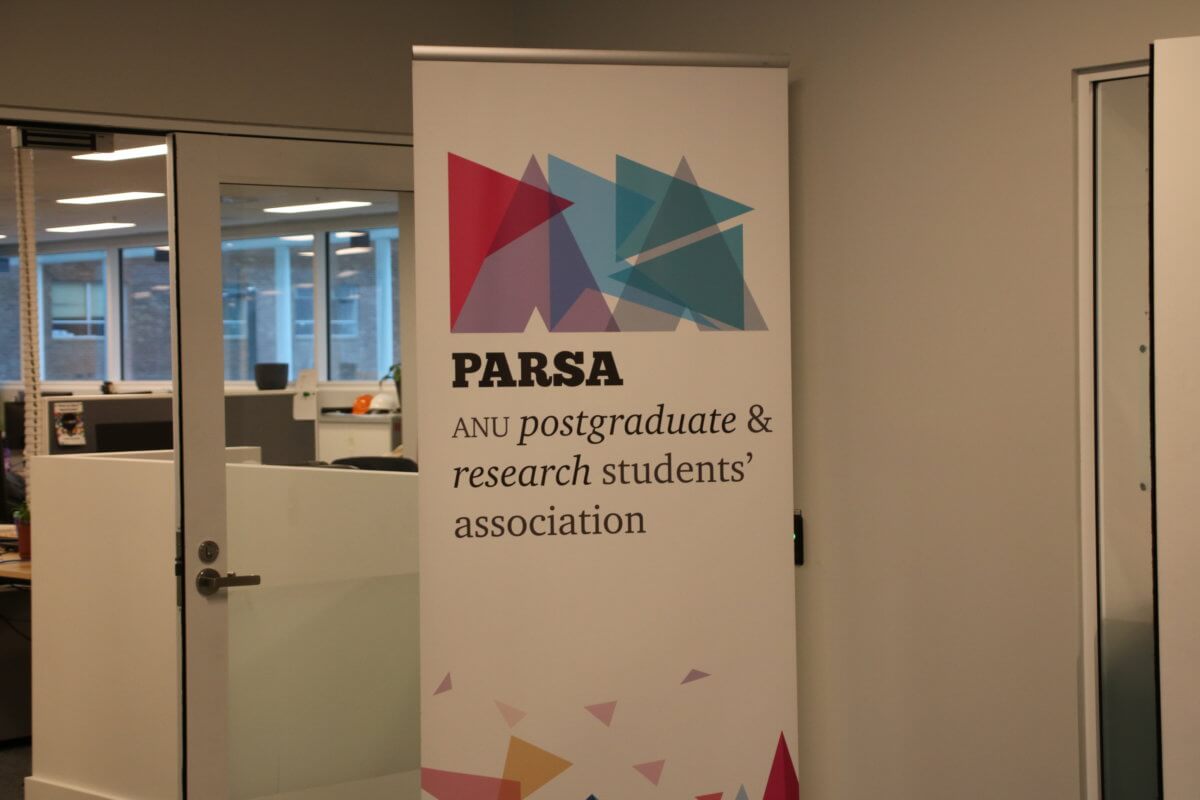Following last year’s breakdown of Postgraduate and Research Students’ Association (PARSA), as a result of financial mismanagement and the subsequent resignation of most of the association’s Board, a new constitution has been written.
The new constitution proposed for the PARSA includes an ANU Advisory Committee with ANU staff as members. For many, this has rung alarm bells over ANU interference in student unionism.
The constitution was written in consultation with a specialist firm and the ANU Corporate Governance and Risk Office. No proposer is listed in the Annual General Meeting (AGM) agenda.
A press release from PARSA explained the Advisory Committee as “a compromise we have had to make after the governance disputes of 2021.”
There are several components of the Advisory Committee, and there is debate around the extent of its power. According to the new constitution, the Advisory Committee must have one representative from the ANU on it, and up to five additional representatives.
The advisory committee, according to the constitution, is intended to “provide in-house expertise on issues which Council Members might not have experience with.”
While the recommendations of the Committee are not binding, the constitution claims that “failure to consider advice relevant to legal or financial issues may constitute a breach of Council Member’s fiduciary obligations.” Lastly, the constitution affords Advisory Committee members the ability to “attend Council or Executive meetings upon request.”
PARSA is confident that the Advisory Committee would not be able to make decisions; rather, it would only provide advice solicited by the Postgraduate Representative Council (PRC). Further, PARSA claims that members of the Committee would only attend PRC meetings when requested.
Eleanor Cooper, PARSA’s General-Secretary described the Advisory Committee as a compromise for the ANU, as the university had originally wanted its representative to sit on the Board of PARSA. This would have given the ANU a vote on the financial, constitutional and organisational decisions of PARSA.
However, Cooper clarified that “…the ANU rep[resentative] won’t decide any direction that PARSA takes.” Moreover, the General-Secretary raised that there were concerns that ANU Council would not approve the new constitution unless it had some form of representative included.
Meanwhile, ANUSA has expressed concern about the ANU encroaching onto student unionism and activism.
ANUSA has come out against the Advisory Committee in strong terms, writing that “ANUSA wholly stands against any interference in our student unions in any capacity by the university.” The undergraduate student association worries about the nature of student advocacy and unionism “if the university gains influence over the very organisations that exist to hold the university accountable.”
ANUSA has also criticised how the constitution appears to give Advisory Committee members the ability to attend PRC members. They felt this could prevent students and representatives from voicing their concerns about certain issues, and stifle free discussion about the ANU.
Of particular concern to many members was the allegation that the ANU had made SSAF funding conditional on certain stipulated changes. The ANUSA executive does not want the ANU to use its financial power to interfere in its decisions, policies and operations. They feel that this sets a precedent of ANU using the prospect of funds to ensure compliance. This is a threat they feel exists “regardless of current stated intentions…”.
There is ongoing debate as to the financial power of the ANU over unions. ANUSA itself only receives 35 percent of SSAF funding, despite being one of the main and most-well known providers of undergraduate services on campus. Many student unions across the country want to have full control over SSAF funds and the National Union of Students is campaigning for this at a national level.
Each year, ANUSA must apply to receive SSAF funding. While ANUSA’s funding application is typically successful, some of its members are concerned that a precedent has been set wherein the ANU can make funding conditional over certain policies and decisions.
In response to concerns over PARSA’s continued independence, one idea floated was a merger between ANUSA and PARSA. PARSA entertained the idea, but ultimately rejected it. Nonetheless, they still want to “…work more closely with ANUSA on many campaigns”. Acknowledging PARSA’s rejection, ANUSA has requested “…a service provision model that unifies key supports for students, especially financial, academic, legal and welfare”. Woroni will report more on this proposed merger in the coming days.
An ANU spokesperson has stated that “PARSA is an independent association and will remain so;” the Advisory Community will simply facilitate them working together. The spokesperson also added that there are no plans to establish anything similar for ANUSA.
When asked if the ANU would support removing the Advisory Committee should PARSA demonstrate sufficient internal capability, the spokesperson answered that “the advisory committee is not intended as a punitive measure but rather a way to collaborate in a more effective way.”
PARSA’s new constitution will be voted on at the next AGM this coming Tuesday. It remains to be seen what this means for PARSA and whether this changes how the ANU allocates money to student unions.
Disclaimer: Woroni is also funded by SSAF.
Editor’s note (23/5): An earlier version of this article stated that “Following last year’s breakdown of PARSA, as a result of financial mismanagement and the subsequent resignation of most of the Postgraduate Representative Council (PRC).” This article has since been amended to clarify that it was in fact the PARSA board that resigned, not the PRC. We apologise for this error.
We acknowledge the Ngunnawal and Ngambri people, who are the Traditional Custodians of the land on which Woroni, Woroni Radio and Woroni TV are created, edited, published, printed and distributed. We pay our respects to Elders past and present. We acknowledge that the name Woroni was taken from the Wadi Wadi Nation without permission, and we are striving to do better for future reconciliation.
